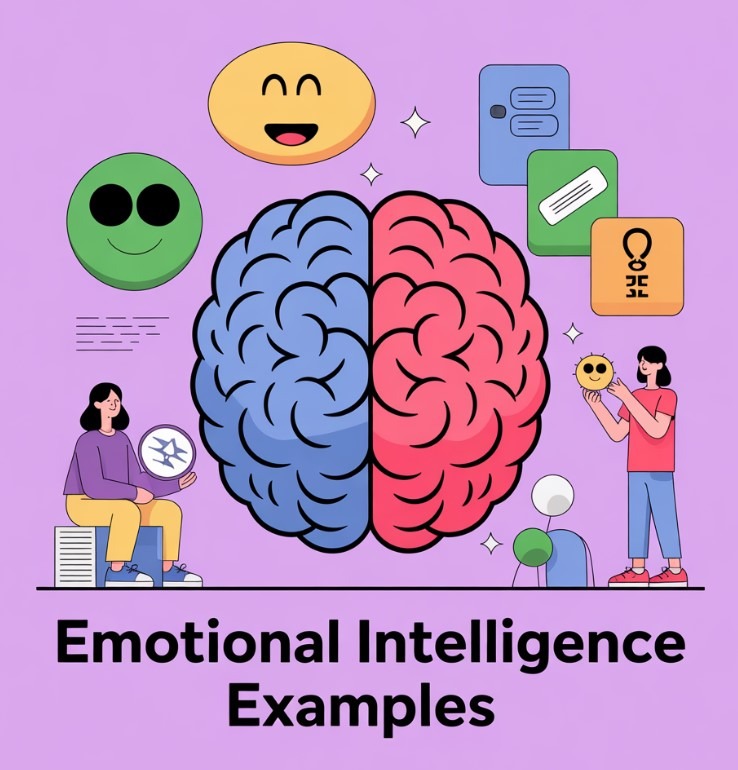Bioelements and Examples

Contents
Bioelements are chemical elements that are part of living organisms and are necessary for their normal functioning. More than 80 chemical elements have been discovered in living organisms of animals and humans using various chemical and physicochemical methods.
Many natural scientists – analytical chemists, biochemists, physicians, and physiologists – were involved in studying their content in certain organs, tissues, and physiological fluids of the body, and in clarifying the biological role of these elements.
A significant contribution to expanding our knowledge of the role of chemical elements in biological systems was made by such scientists as V. Vernadsky, A. Vinogradov, G. Babenko, J. Peive, K. Yatsimirsky, G. Eichhorn, D. Williams, E. Adverwood and others.
Biogeochemistry
It has been proven that there is a close relationship between the chemical composition of soils and the forms of plants growing on them. Some plants are able to concentrate certain chemical elements from the environment (soil, water). Thus, the content of Silicon, Phosphorus, Manganese in plants is approximately 103-105 times greater than in sea water.
The founder of biogeochemistry, Academician Vernadsky, studying the distribution of chemical elements in the earth’s crust, was the first to substantiate the role of living matter in the migration of elements and showed the importance of chemical elements for the life activity and evolution of human and animal organisms.
Changes in the earth’s crust that occur over millennia affect the chemical composition and course of biochemical reactions in living systems, which, in turn, determine the migration of chemical elements in nature.
Migration of chemical elements is understood as their movement in the environment. If such movement occurs with the participation of living matter, then the migration is called biogenic.
Thus, under the influence of living systems in nature, there is a constant cycle of chemical elements. The organism selectively assimilates certain chemical elements from the biosphere. Their concentration depends on the solubility of the compounds of this element in the environment of the organism, as well as the charge of the nucleus of this element.
For example, Silicon, Aluminum, Titanium are fairly common elements in the earth’s crust; however, due to the low solubility of their compounds in water, these elements are part of living systems in small quantities.
Carbon, Nitrogen, Phosphorus, Iodine – elements are less common in the earth’s crust, however, due to the good solubility of their compounds in water, the content of these elements in the body is significantly higher.
Developing the teachings of V. Vernadsky on the chemical composition of the earth’s crust (lithosphere) and living systems, Academician A. Vinogradov established a pattern of distribution of chemical elements in the lithosphere and biosphere, the essence of which is as follows:
- The chemical composition of living organisms is an expression of the chemical composition of the environment
- The quantitative content of a chemical element in living matter is inversely proportional to the ordinal number of this element in the periodic table of elements or the charge of its nucleus.
Classification of bioelements
Thus, on the basis of natural selection, chemical elements were determined that are irreplaceable components of the existence and functioning of living organisms. They are part of various biological systems and play a certain physiological role in them.
In 1974, Kowalski proposed dividing the chemical elements that were then found in the human and animal body into three main groups.
- The first group consists of 20 essential elements that are constantly present in the human body, as well as animals, and are part of proteins, enzymes , vitamins, hormones , nucleic acids. Non-metals include C, H, O, N, P, S, Cl, I, Se, and metals include Na, K, Ca, Mg, Zn, Cu, Fe, Co, Mn, V, Mo.
- The second group includes elements that are also constantly present in living organisms, but their function has not been sufficiently studied. These are non-metals – F, Br, Si, As and metals – Li, Cs, Be, Sr, Ba, Cd, Hg, Ag, Pb, Vi, etc.
- The third group includes elements found in living organisms, but their quantitative composition and biological functions have not yet been studied (TI, Te, W, Au).
E. Underwood proposed to classify the chemical elements of the body into the following three groups:
- elements essential for the nutrition of higher organisms (Fe, Cu, Zn, Mn, Co, Mo, Cr, Sn, I, Se);
- possibly necessary for the functioning of living systems (F, W, As, B, Ni, V, etc.);
- elements whose biological role has not been established (Au, Ag, Ti, Sb).
Biometal content in the body
Over the years since the first classification of elements, the biological role of many elements that can be classified as essential elements has been proven. These are non-metals – F, Br, I, B, Si, Se and metals – Al, Cr, Ni, Sn.
Therefore, the distribution of elements into groups according to the classification of B. Kowalski and E. Underwood is conditional.
| Biometal | % mass | g/70 kg |
|---|---|---|
| Calcium | 1.5 | 1050 |
| Potassium | 0.35 | 245 |
| Sodium | 0.15 | 105 |
| Magnesium | 0.05 | 35 |
| Ferum | 0.01 | 5 |
| Zinc | 2.7×10 -3 | 1.9 |
| Cuprum | 2×10 -4 | 0.15 |
| Mangan | 2.8×10 -5 | 0.02 |
| Cobalt | 4×10 -6 | 0.003 |
| Chromium | 2×10 -6 | 0,0015 |
The most important of these are chemical elements, which make up 97.5% of the total mass of the organism. These are six chemical elements: O, CH, N, P, S, which are called organogenic elements. Their content in the organism and their biological role are known, but they are the subject of research in the course of bioboundary chemistry and biochemistry.
A. Vinogradov proposed dividing bioelements according to their quantitative content in the body into macro, micro and ultramicroelements.
Macro and Microelements
In addition to the above-mentioned organogenic elements, the following elements are also considered macroelements: K, Na, Ca, Mg, Cl. Their mass fraction in the body is 0.01% (10 -2 % by weight) and more. Microelements are part of living organisms in smaller quantities – from 10 -3 to 10 -6 % by weight.
The biological role of microelements has been studied for several centuries. At the beginning of the 17th century, French scientists Lemery and Theory discovered Ferrum in human and animal tissues, but more detailed studies began in the second half of the 19th century.
Thus, in 1852, doctors learned that the element Iodine activates the thyroid gland. Later, a report appeared on the participation of Cu 2+ ions in hematopoiesis, as well as information on the effect of Lithium ions on metabolism.
Important studies of that period were related to the study of the role of Ferrum and Cuprum in hematopoiesis. It was also confirmed that certain microelements influence the course of metabolic processes in living organisms.
When animals in some countries often suffered from anemia, lost a lot of weight and died, active searches for the causes of this phenomenon led researchers to discover a deficiency of Copper and Cobalt in the feed of these animals.
The condition of sick animals improved when the above-mentioned chemical elements were introduced into their diet. Later, methods of treating such a serious disease as pernicious anemia, which had long been considered incurable, were developed.
When there is a deficiency of Cuprum and Ferrum in the soil, plants suffer from chlorosis, and an excess of Molybdenum, Selenium, and Fluor also causes various diseases in animals and humans.
There are entire geographical territories that differ in the qualitative composition and quantitative content of chemical elements in soils; they are called biogeochemical provinces.
In living organisms inhabiting these territories, certain pathological changes may occur and endemic diseases may arise.
There are provinces with a low content of iodine (mountainous regions of the western regions of Ukraine) or cobalt, copper, molybdenum (some regions in Russia, the Baltics), as well as provinces with a high content of copper (Bashkiria), copper and nickel (Kazakhstan).
It has been proven that such diseases as goiter, gout, dental caries are closely related to the content of certain chemical elements in the body. Consequently, the animal and plant world are in constant and close connection with the biosphere (hydrosphere, lithosphere and atmosphere).
And despite the fact that some elements are part of living organisms in micro quantities, they play an important role in their life processes. Currently, microelements include more than 20 chemical elements, the quantitative content of which in the body is known and their biological role has been proven.
Ultramicroelements
If the mass fraction of an element in the body is less than 10 -6 wt.%, then they are classified as ultramicroelements or trace elements (Au, Hg, Ti).
Studying the content and role of these parts in the life of the organism requires complex analytical equipment. But our knowledge of these elements is gradually expanding, since the methods of physical and chemical analysis are constantly being improved.
The taxonomy of biogenic elements by A. Venchikov is noteworthy, where the main thing is the importance of the element for physiological processes. According to this classification, all chemical elements with a known physiological function, regardless of their quantitative content in the body, are classified as biotics .
On the one hand, biotics are macro- and microelements, since they are constantly contained in certain organs and when they are deficient, the normal functioning of these organs is disrupted. On the other hand, these are vitamins, enzymes, hormones and other biologically active substances that participate in the metabolic processes of a living organism.
According to this classification, all bioelements can be divided into four groups:
- Elements (C, H, O, N, P, Cl, K, Na, Ca, Mg) that create conditions for physiological processes in biofluids, maintaining acid-base balance, a certain pH value, osmotic pressure, as well as elements that act as a plastic material for building tissues.
- Elements involved in metabolism, as they are part of a significant number of metalloenzymes (Fe, Zn, Cu, Mo), vitamins (Co), hormones (1).
- Elements that promote the formation of substances in the body that suppress the reproduction and development of microorganisms (As, Sb, Ag).
- Elements that regulate the course of various oxidation-reduction reactions (Mn, Cu, Cr). There are other types of classification of bioelements, but they all have certain shortcomings, since chemical elements in living systems perform not one, but several functions to a greater extent. Therefore, research in this area is actively continuing.
In the second half of the 20th century, a new science was formed about the role of metal ions and their compounds with proteins, nucleic acids, and lipids in the vital activity of organisms, which was called bioinorganic chemistry.
The task of bioinorganic chemistry is to model biocomplexes and biological processes, explain the mechanism of biological activity of metals, prevent diseases and search for new drugs.
The founders of bioinorganic chemistry are considered to be such scientists as V. Vernadsky, P. Pfeiffer, L. Chugaev, K. Yatsimirsky.
The achievements of bioinorganic chemistry are now being applied in practical human activities. For example, recommendations on rational farming, effective use of micronutrients and environmental protection have been developed based on scientific generalizations.











